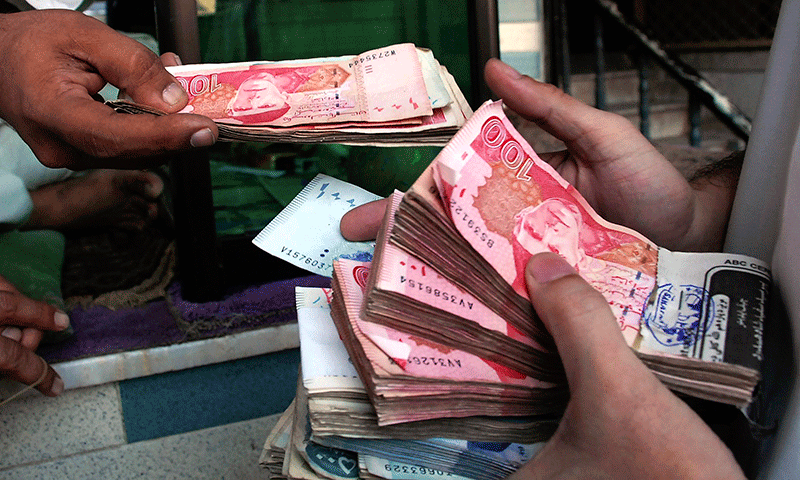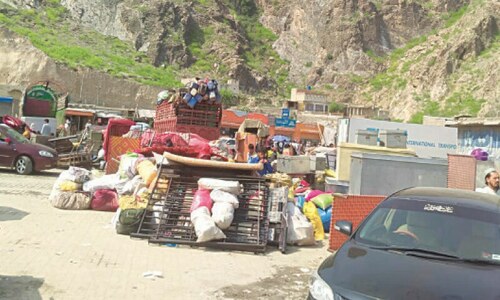The top United Nations court on Friday ordered Israel to halt military operations in Rafah, a landmark ruling likely to increase mounting international pressure on Israel more than seven months into the Gaza crisis.
Israel must “immediately halt its military offensive, and any other action in the Rafah Governorate, which may inflict on the Palestinian group in Gaza conditions of life that could bring about its physical destruction in whole or in part”, the International Court of Justice (ICJ) said.
It also ordered Israel to keep the Rafah crossing into Gaza open for the “unhindered” provision of humanitarian aid.
The court also demanded the immediate release of all hostages still held by Hamas, hours after the Israeli military announced troops had recovered the bodies of three more of the captives from north Gaza.
“The court finds it deeply troubling that many of these hostages remain in captivity and reiterates its call for their immediate and unconditional release,” it said.
ICJ rulings are legally binding but the court has no concrete means to enforce them. For example, it ordered Russia to halt its invasion of Ukraine, to no avail.
Israel had argued before the court that an order to stop military activity would give free rein to Hamas and prevent its army from rescuing hostages taken in the group’s October 7 attack.
The ICJ ruling comes hot on the heels of another highly charged decision by the International Criminal Court prosecutor to seek arrest warrants for top Israeli and Hamas leaders on Monday.
Prosecutor Karim Khan alleged that senior Israeli leaders, including Prime Minister Benjamin Netanyahu, plus top Hamas officials, were guilty of war crimes and crimes against humanity related to the fighting in Gaza and the October 7 attack.
‘Obscene exploitation’
South Africa brought the case before the ICJ last year, alleging that Israel’s Gaza offensive breached the 1948 UN Genocide Convention — a charge strongly denied by Israel.
In a ruling on January 26 that made headlines worldwide, the ICJ ordered Israel to do everything it could to prevent acts of genocide during its military operation in Gaza.
But South Africa has returned several times to the ICJ arguing that the dire humanitarian situation in Gaza compels the court to issue further fresh emergency measures. The court did so in March, ordering new measures compelling Israel to ensure the “unhindered provision at scale” of humanitarian aid.
In public hearings last week, South Africa’s ambassador Vusimuzi Madonsela alleged that “Israel’s genocide has continued apace and has just reached a new and horrific stage”.
“Although the present application was triggered by the unfolding situation in Rafah, Israel’s genocidal onslaught across Gaza has intensified over the past few days, also warranting the attention of this court,” he said.
South Africa argued the only way to enable humanitarian aid to ease the crisis in Gaza was a full halt to Israel’s military operations.
The court will take months if not years to rule on the broader South African genocide case, but it can order urgent measures while weighing its decision.
Israel retorted that South Africa’s case was an “obscene exploitation of the most sacred convention” and the picture Pretoria paints to the court was “completely divorced from the facts and circumstances”.
“It makes a mockery of the heinous charge of genocide,” said top Israel lawyer Gilad Noam at hearings. “Calling something a genocide, again and again, does not make it genocide. Repeating a lie does not make it true,” he added.
Israel also said it was “acutely aware” of the suffering of civilians in the Gaza Strip and that it has made “extensive efforts” to increase humanitarian aid flowing.
US President Joe Biden said this week that “what’s happening is not genocide.”
Stalled talks
Israel said on Thursday it was ready to resume stalled talks on a truce and hostage release deal with Hamas, as Netanyahu faces growing domestic pressure to secure their freedom.
US intelligence chief Bill Burns is expected to meet Israeli representatives in Paris to relaunch negotiations, according to a Western source close to the issue.
Previous talks in Cairo and Doha attended by Qatar and Egypt as mediators for Hamas broke up earlier this month.
Fighting in Gaza broke out after Hamas’s unprecedented attack on October 7 resulted in the deaths of more than 1,170 people, mostly civilians, according to an AFP tally of Israeli official figures.
Hamas also took 252 hostages, 124 of whom remain in Gaza, including 37 the army says are dead. Israel’s retaliatory offensive has killed at least 35,800 people in Gaza, mostly civilians, according to the territory’s health ministry.
Reactions
Israeli Finance Minister Bezazel Smotrich slammed the ICJ ruling, stating that ordering a halt to the offensive was akin to demanding that “it (Israel) cease to exist”.
In a post on X, the minister said, “The State of Israel is at war for its existence. Those who demand that the State of Israel stop the war, demand that it decree itself to cease to exist. We will not agree to that.”
Hamas official Basem Naim said, “We welcome the decision by the World Court that calls on the Zionist occupation forces to end its military aggression on Rafah. We believe it is not enough since the occupation aggression across the Gaza Strip and especially in northern Gaza is just as brutal and dangerous.
“We call upon the UN Security Council to immediately implement this demand by the World Court into practical measures to compel the Zionist enemy to implement the decision.
“We welcome the court’s request to allow investigation committees to reach the Gaza Strip to investigate acts of war of genocide against the Palestinian people and Hamas pledges to cooperate with investigation committees.”
Palestinian Authority Spokesperson Nabil Abu Rudeineh said, “The presidency welcomes the decision issued by the International Court of Justice, which represents an international consensus on the demand to stop the all-out war on Gaza.”
Opposition leader Yair Lapid said the court’s failure to link a demand for an end to fighting with a demand to return Israeli hostages in Gaza was “a moral collapse and a moral disaster”.
Former Israeli UN envoy Danny Danon said, “As ICJ judges in The Hague deliberate in comfort and return to their families, 125 hostages languish in tunnels. Israel will not cease the war until our hostages are brought back home and Hamas is completely defeated.”
South African official Zane Dangor said, “South Africa welcomes the ruling made by the court today. […] This order is ground-breaking as it is the first time that explicit mention is made for Israel to halt its military action in any area of Gaza “This is de facto calling for a ceasefire. It is ordering the major party in this conflict to end its belligerent action against the people of Palestine.”
Belgian Foreign Minister Hadja Lahbib said on X, “The [ICJ] orders Israel to stop its military offensive in Rafah. (Belgium) calls for immediate implementation of the decision. The violence and human suffering in Gaza must stop. We call for a ceasefire, the release of the hostages and negotiations for two states.”
The Global Rights Complaince NGO also issued a statement: “The ruling today serves as another admonishment of Israel’s flagrant disregard for international law and the obligation to protect civilians in conflict.
“Crucially, it gives critical recognition to survivors and the communities living under these attacks that they are unlawful. The ruling is likely to generate further pressure and international attention against Israel and their conduct of hostilities which has, to date, had all the hallmarks of starvation being used as a deliberate method of warfare.”
EU foreign policy chief Josep Borrell said the EU would have to choose between respecting support for international institutions of the rule of law and its support of Israel.
“What is going to be the (EU’s) answer to the ruling of the International Court of Justice that has been issued today, what is going to be our position? We will have to choose between our support to international institutions of the rule of law or our support to Israel.”













































